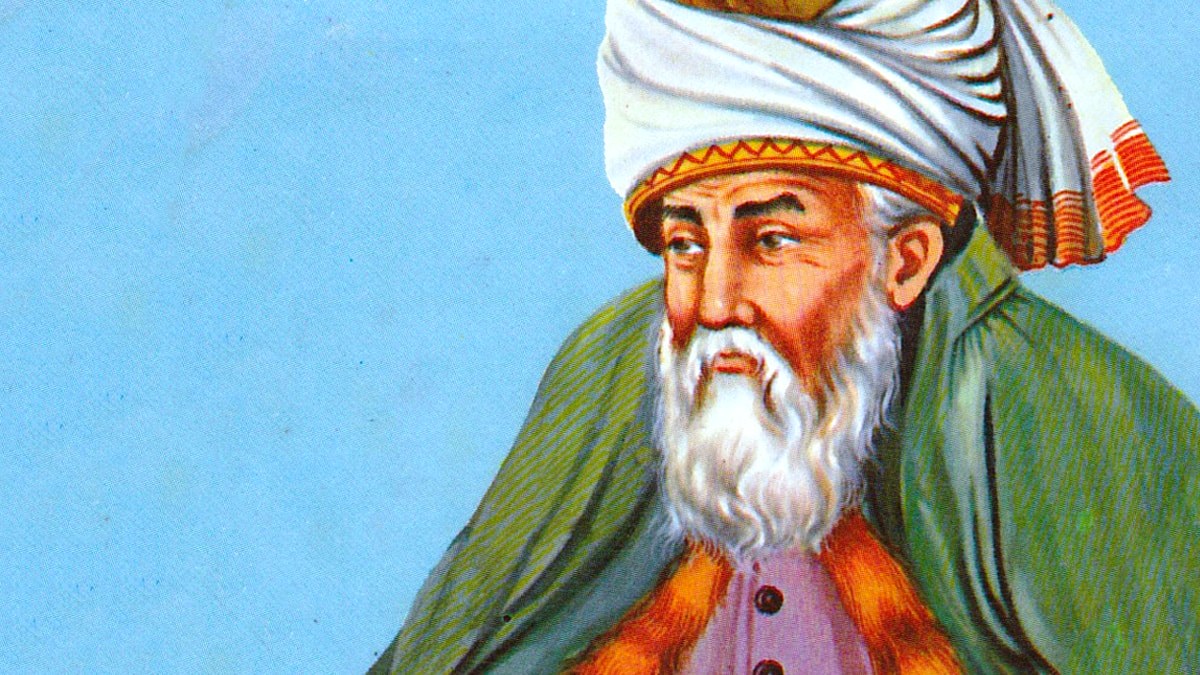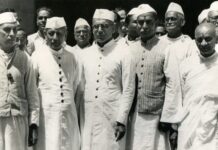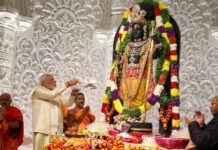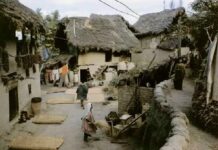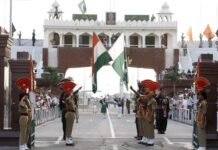In TahreekAqwam Kashmir [A History of the People of Kashmir] (1934), journalist and historian Munshi Muhammad Din Fauq has provided a comprehensive survey of different social groups, tribes, and castes of Kashmir. Based on primary data, Persian sources, anecdotes, and official reports, this book perhaps is the only work offering a detailed discussion on the antecedents of different tribes, clans and social classes of Kashmir. Read select excerpts detailing the profiles of two Ganai families in Lahore, rendered into English by scholar Muhammad Tahir

In Lahore, there are two prominent Ganai families among ‘ahlSunnatwaJamat’. There is one from the Ganai ancestry who came from Kashmir during the Sikh rule [1820-46]. Their son’s name was Wali Mohammad. Mian Imam Bakhsh, who lived in KhezriMohala, was Wali Mohammad’s son. Late Sheikh Jan Mohammad Ganai and his brother Mian Mohammad Ismail are the sons of Mian Imam Bakhsh. Sheikh Jan Mohammad Ganai was the first one to publish the journal Kashmir Gazette under the editorship of this author. KhawajaAlaBakhshGanai, who often takes part in national and Islamic activities, and is a well-known bookseller in Lahore, is the only son of Sheikh Jan Mohammad. Another family of Ganais is of KhawajaGhulam Mohammad Ahrari, whose uncle, Chaudhary Aziz ud Din, is the famous contractor of Jammu. The relatives of this family are still in Srinagar, living in the Eidgah area.
In the section on the religious-spiritual leaders of Kashmir, the learned scholars and virtuous and pious men of the Ganai clan have already been mentioned [see, pp. 290-93].
Nevertheless, from Kashmiri history, it becomes known that the people of this clan also possessed martial capabilities. So, in the complete history of Kashmir, in the account of the King of Kashmir Ali Shah Chak (978 H). It is written that when even after paying tribute to Ali Shah, and giving his daughter, Shankar Devi (FatehKhatoon), to his grandson Yaqoob Khan, the Raja of Kishtwar, Bahadur Singh still revolted, the king sent his two military generals, Ismail Ganai and HyderChak, to Kishtwar with an army, which defeated the Raja. And, carrying his (Raja’s) mercy petition, also made his brother, Kanwar Singh, hostage and brought him along with them.
According to the data of the report Kashmir Agricultural Board Rawalpindi 1927, in the districts of Rawalpindi, Jhelum, Gujrat, those Ganai families who are agriculturalist or in the military employment are 970 [in number]. In Anantnag tehsil, the village GanaiGund is named after this clan, whose population is of 266 people.
In the peoples of Kashmir, the stature and historical situation of the Ganaiclan, and the account of its great scholars has already been written about. Likewise, mention is also made of a Ganai family of Lahore whose distinguished member, Sheikh Jan Mohammad Ganai, had issued the [journal] Kashmir Gazette before anyone else, and whose son Sheikh AlaBakhshGanai is an ardent member of the Muslim Kashmiri Conference, a zealous volunteer of the MajlisAhrar-e-Hind, and a famous bookseller of Lahore.
Now, let us talk about one more Ganai family, which is residing in Punjab for the last 75-80 years.
In Srinagar, KhawajaGul Mohammad Ganai was a wealthy and respected man, an illustrious personality during the reign of Maharaja Gulab Singh [1846-57]. He had two sons: Haji Habibullah and KhawajaGhulam Mustafa. The elder son, Haji Habibullah, in connection with pashmina and shawl trade, went to Lahore along with his nephew, i.e. the son of KhawajaGhulam Mustafa, Aziz-ud-din. Related to their pashmina trade, they also started the business of buying and selling horses and made such progress that they completely left the pashmina trade.
During the same time, in the famous historical building inside the MochiDarwaza of PatharanwaliHaweli used to live another nobleman from Kashmir, ChoudharyMikal (sic), who was bestowed by God with honour and wealth. Considering the stature of Haji Habibullah’s family and his good character, he [Choudhary] married his daughter to him.
During his stay in Sialkot, where he lived and took care of the business that he fell ill and died. So, he was buried in a graveyard there.
He had two sons – Mian Jan Mohammad, a horse trader, and Mian Ahmad Din, a contractor. Mian Jan Mohammad has been a successful businessman in his trade. His son, KhawajaGhulam Mohammad, was first employed in the Lahore Municipality, but his national, Islamic and republican sentiments, which were safeguarded inside his chest, got inflamed during the times of Khilafat [movement]. He faced many troubles of imprisonment. And then, in the 1931 Kashmir agitation, putting up a bold front, he kept leading the intrepid caravans of Ahrar.
Therefore, it is written about him on page 57 of the history of Ahrar “When on the Mirpur front, ShaheedIlahiBakhsh was martyred, hordes of barefoot volunteers left towards Kashmir. KhawajaGhulam Mohammad received oath on the Quran from thirty daring volunteers, travelled from Lahore to Rawalpindi and then reached to Kohala. The oath was that they would shut the bridge of Kohala even by sacrificing their lives. At that time, the river was also flowing with ferocious speed. Many youths fell into the river. Some climbed on the bayonets of the soldiers. On the third day, the news arrived that Ahrar had captured the bridge and sealed the door for any movement or trade. In two days, thousands of lorries got immobilized on both sides”. On page 36 of the same book, it is also written about him: “Among us,KhawajaGhulam Mohammad was a young and brave member. He was always ready to play with snakes and jump into the fire”. Presently, KhawajaGhulam Mohammad is working in an insurance company in Lahore on a reasonable salary.
Mian Jan Mohammad’s younger brother, Ahmad Deen, was in contract business. Approximately, twenty years have passed since his death. He has left behind three sons – Khawaja Zia ud Din, KhawajaAlauddin, KhawajaBahauddin.
At the time of Mian Ahmad Deen’s death, all his three sons, being underage, were not in a position to handle their business. As a result, that job kept slipping from their hands. However, when the brothers reached the age of some maturity, KhawajaZiauddinGanai along with his younger brother KhawajaAlauddin went to Africa to try their luck. In Nairobi, he is working on a good post in the department of public works. KhawajaAlauddin is also there working as a government employee, and the youngest brother, KhawajaBahauddin, is a railway clerk in Lahore.
Despite being so far away from the homeland, he would still wholeheartedly participate in national and Islamic activities. Apart from the welfare of the common Muslims in Nairobi, he also took especially care about the welfare and betterment of Kashmiri youth and about their unity and unanimity. Among those local young men who established the Kashmiri Muslim Union in Nairobi, his name comes under the pioneers. This Union carries out nationalist activities from time to time. Recently, God Almighty has given him a son, who has been named as Shujaud din Ahmad.

The brother of late Haji Habibullah, KhawajaGhulam Mustafa’s son, Khawaja Aziz ud din along with his uncle first engaged in pashmina trade and then in horse dealing. But, after his death, he came to Jammu. There also he did this business of buying and selling horses. He had made many tongas[horse-drawn carriers) there as well. And, this business was on a bigger scale, and now in Jammu instead of Khawaja, he was more famous with the title Choudhury.
He used to do contractor work as well. Those days there was a tradition of carriages. During the time when the Prince of Wales had come to Jammu, he had also received a certificate for the work of excellence from him.
He used to treat this author with utmost respect and courtesy. Whenever we met in Jammu, he patronized and helped the Akhbar Kashmiri. He also deeply cared about the national welfare, and often poor and needy would profit from his generosity. Alas! This noble countryman died in 1920 in Lahore. His four children are presently alive who reside in the new settlement Misri Shah of Lahore. Following are their names: KhawajaGhulamMohiuddin, whose son’s name is Nisar Ahmad; KhawajaFerozud din; KhawajaGhulam Mohammad; and, Khawaja Bashir Ahmad.
(Tahir obtained his PhD in Politics and International Relations from Dublin City University, Ireland. His essays and articles have appeared in Caravan, RTE, The Wire, The Japan Times, Kindle Magazine, Express Tribune, LSE Blogs, Asia Dialogue, and in different newspapers and magazines in Kashmir.)



